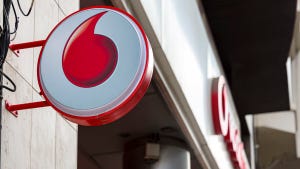
A coalition of US-based tech firms that includes Apple, Broadcom, Cisco Systems, Facebook, Hewlett-Packard Enterprise (HPE), Microsoft and Ruckus Networks is opposing a move by Ericsson and Huawei to have the 6GHz spectrum band included in an International Telecommunications Union (ITU) study for International Mobile Telecommunications (IMT).
And not only are they arguing against Ericsson's and Huawei's request, they are using pro-US tactics to stop the move. In a letter to the FCC, the companies state that they are all US-based firms and that the US leads in WiFi technology. Further, the letter notes that unlicensed technologies like WiFi contribute $2 trillion to the global economy and will contribute nearly $1 trillion to the US economy by 2023. The letter also says that a delay on the topic "disadvantages American consumers" because it will delay the deployment of WiFi 6.
The Apple-led group argues that the ITU study will take at least four years to complete and will prevent WiFi 6 from being adopted by other regions of the world, which means that it won't achieve global economies of scale when it comes to equipment.
For reference, IMT is a generic term that refers to an ITU process in which the organization adopts global standards for mobile networks like 5G. The benefit of these standards and regulations is that it can result in global networks that use uniform spectrum, or "harmonized" spectrum, which in turn reduces interference and results in less expensive equipment because vendors don't have tweak their gear to accommodate different spectrum bands in different areas.
The Apple-led group asserts that the FCC should release the 6GHz spectrum band to unlicensed technologies while protecting incumbents in the band. That's in opposition to companies like Qualcomm and Ericsson that are calling for some portion of the band to support licensed uses, including 5G.
WiFi 6 is already gaining traction and all the companies listed in the FCC letter stand to lose if the FCC's rulemaking in 6GHz is delayed, since WiFi operations in 2.4GHz and 5GHz are relatively crowded and the 6GHz band could alleviate that congestion. Apple has already incorporated WiFi 6 into its latest iPhone 11 smartphone. Cisco, HPE and Ruckus are all deploying WiFi 6 networks in campuses, stadiums and schools. And the WiFi Alliance has already launched a WiFi 6 certification program.
Meanwhile, Ericsson maintains that it supports unlicensed spectrum and has suggested that 500 MHz in the lower portion of the 6GHz band be dedicated for unlicensed use without delay. "Ericsson has made its position known in our comments in the FCC's record: We absolutely do not seek to delay access to the band," the company said in a statement to Light Reading.
This battle between cellular and WiFi players over spectrum isn't new. Operators like AT&T, Verizon and others have been hoping that spectrum-sharing technologies will be used to open up the 6GHz band to more licensed uses, including 5G.
— Sue Marek, special to Light Reading. Follow her @suemarek.
About the Author(s)
You May Also Like











